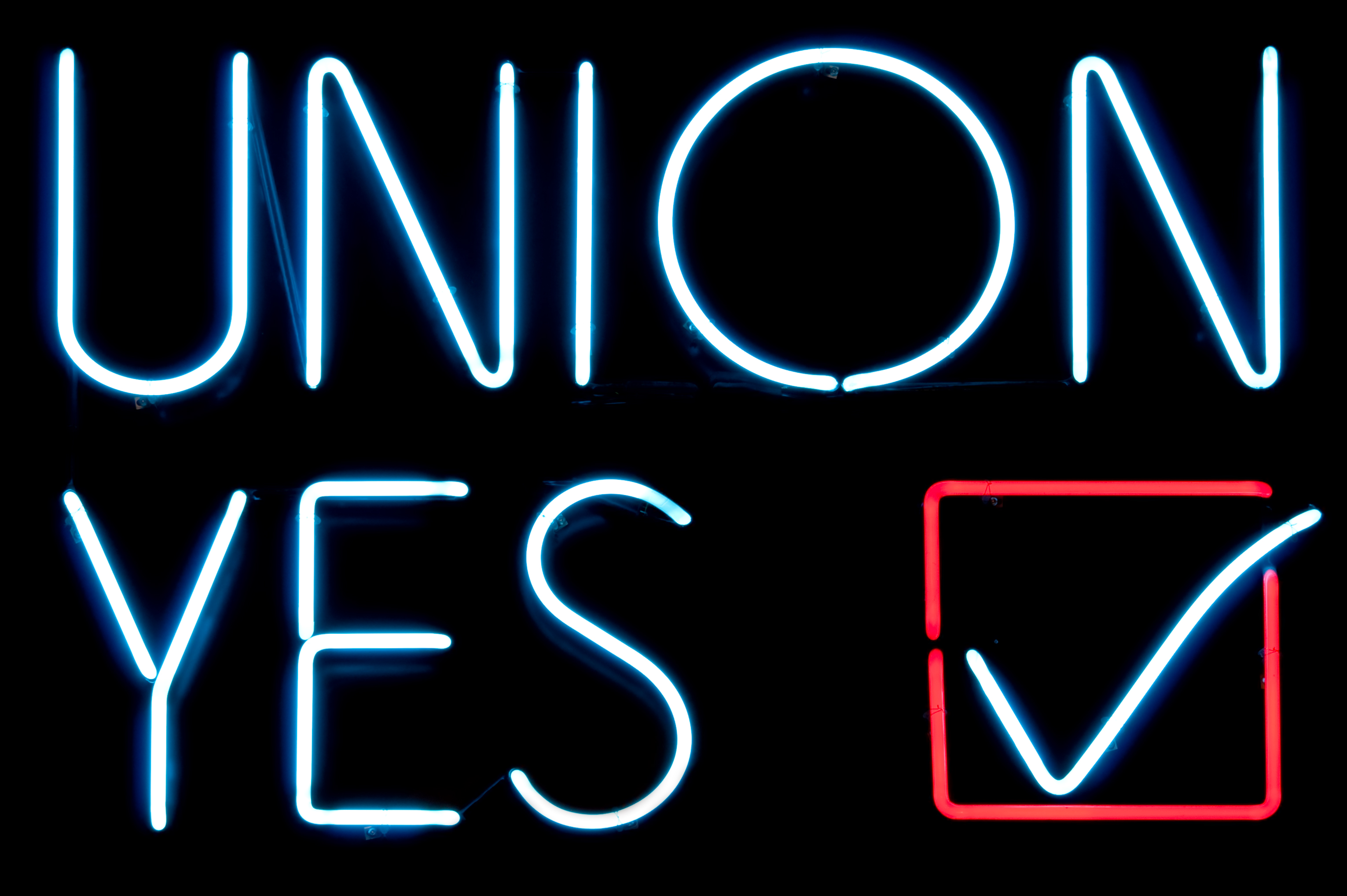When it comes to budgeting and planning a trade show, one of the most critical variables to consider is the cost of the Union at the convention center. Because the Union, otherwise known as contracted labor, dictates how much they are going to charge you for their services (there are no standard fees), getting into a written agreement with them can be daunting and more importantly, expensive. So, unless you know what to look for in the rather long and puzzling contract, you can easily overpay and not even realize it.
In that case, how can you be sure that you get billed correctly by the Union labor at the convention center?
Consider the Union service expenses
- Unloading the trade show contents once they have arrived at the loading dock
- Weighing everything that comes into the convention center (however, if you order items such as AV or Furniture rentals through the local contractor, drayage may be waived)
- Transferring the goods to the booth space
- Removing empty shipping items (such as crates and pallets) from the booth space
- Temporarily storing empty cases during the show
- Returning empty cases once the show is over
- Transporting the goods back to the loading dock
- Loading the items into your carrier’s delivery vehicle
If you want to stay within your budget, the very first thing you need to do is take all the possible expenses into account. This is important because there are many expenses related to the Union services that, if left unchecked, can really add up in your final invoice.
One of the biggest costs associated with putting together a trade show is Drayage (also known as material handling). Drayage is an unavoidable expense that can blindside any show producer. Drayage typically includes:
I&D (Installation and Dismantle) refers to the union labor needed to assemble and dismantle your exhibit. Keep in mind – each union has different rules and there are specific workers that are allowed to work in each department. For example, the person who puts up the walls of your booth will not be the same person who will install a plasma TV in your booth and the person who installs power will be different from the person who sets up your lights. In addition, everyone has a different rate and if load-in/load-out happens on a weekend, you could be looking at the time and a half or even double time. So, make sure to review each show’s Exhibitor Rules & Regulations to get accurate pricing.
Be prepared before you negotiate
Never try to negotiate someone’s rate before you are ready to book. Negotiation is often the final step at getting what you need at a price you can afford. But before you embark upon negotiating your contracts, do your homework. Decide on what services you need for your trade show and what terms and protections you want. Remember to be confident and do not sit on the fence when under pressure. Stand firm. And by all means, do not sign anything until you are absolutely satisfied with the terms.
Read between the lines
When reviewing the contract, pay attention to the fine points. Scan every line carefully. Especially look for any language that is unclear as line items that are labeled non-specifically are subject to interpretation and can wreak havoc for you and your trade show planning. Watch for any hidden charges or conditions that imply that there may be additional surcharges.
If there is a line item or service listed in your contract that is vague to you, or one you feel you do not need or is just too expensive, question it. Better to ask now than pay the price for it later. The Union should be able to explain why it is in the contract and give grounds for why they are asking for it. From time to time, merely demanding clarification can result in having the fee waived.
Payment schedule
Does your contract have specifics regarding your payment schedule – initial deposit or retainer, and precise details regarding how future payments will be made? No? Well, it should! The schedule for payments may be tied to certain milestones in the planning process or perhaps a set date on the calendar prior to the trade show. Develop the schedule that works best for your cash flow and does not forget to include any taxes and additional fees.
Conclusion
Any successful trade show experience profits from advance budgeting. TOAST has saved our clients a ton of money over the years, just by knowing how to question the bill. We offer comprehensive trade show consulting services and exhibit management. In addition to designing and fabricating the booth, we can coordinate all the Union trade show services to help you exhibit more efficiently and cost-effectively.
